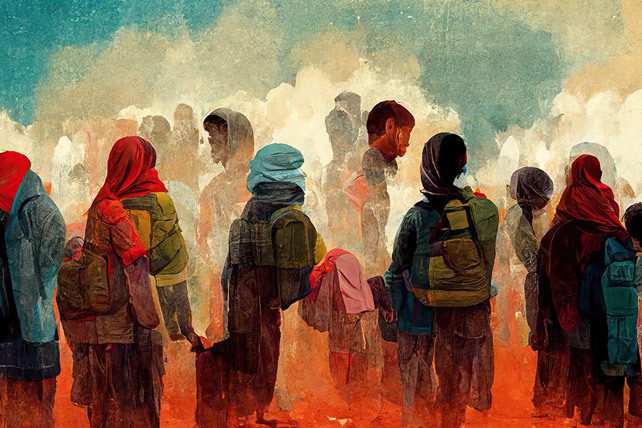With Christmas right around the corner, it is the best time of the year for churches to cultivate meaningful relationships with vulnerable families in their communities. By doing so, we can empower them to build their lives not just for a generation but for an eternity.
I know this first hand because of my family’s experience. The earliest memory my siblings and I have of Christmas in America was in 1983. At the time, our Hmong family was four years into our new life in America.
That year set the tone not only for what Christmas would mean moving forward, but also for what it would mean to belong to America—our new home. That’s largely credited to Barry and Nancy Phillips, our sponsors.

The Philips were our “American” family in those days. They were part of a small network of people who helped our family begin healing from our experience of war and displacement. They did that through small and trivial things like making sure we had a festive Christmas every year. But they also made sure my dad learned how to drive, my mom had meaningful work, and my siblings had the chance to dream.
We arrived in East Moline, Illinois, in 1979 after spending the previous years in a Thailand refugee camp. The camp bordered the war-torn country of Laos where my parents called home for four decades and my older siblings were born. It was home for our family, and it was also where my dad and two uncles fought alongside the CIA in a war later declassified and referred to as America’s Secret War.
Our family was resettled through Lutheran Social Services with the help of a small church. It was through their ministry that my mom and dad became the first followers of Jesus in the history of our family lineage. My siblings and I—a group now composed of a doctor, food distributor, lawyer, engineer, and missiologist—might not be followers of Jesus today if this church did not resettle our family and give us a warm and meaningful beginning in the name of Jesus.
They were a church of welcome—a welcome to America and a first invitation into the Kingdom of God.
Our family was a part of a wave of refugees from French Indochina. This wave was eventually part of setting American policy for refugee resettlement and catalyzing the U.S. work for organizations like World Relief.
Fast-forward to 2023, we’re now living during one of the largest crises in human history: the displacement of over 110 million people around the world. We have reached the highest number in history of women, children, and men forced to leave their home due to conflict, economic turmoil, and climate instability.
What major cable networks choose to report on their news cycles only scratches the surface of what’s happening around the world today. The 20,000 asylum seekers that have shown up to my city, Chicago, in the last year are only a part of the steady stream of new arrivals that have chosen to come here seeking freedom and opportunity.
The story of displaced people due to multi-layered social and political trauma is embedded in the Christmas story. Jesus, Joseph, and Mary sought asylum in Egypt from Herod (Matthew 2:13-15). It isn’t a minor detail in Jesus’ upbringing, but instead a profound life experience that shaped his social narrative, family calling, and the movement he patterned after his incarnation—the Church.

